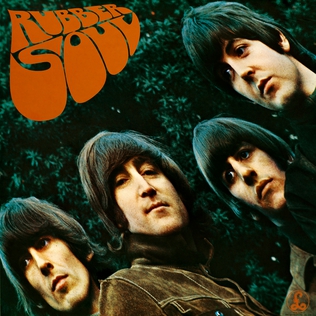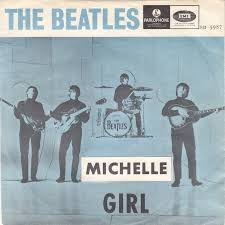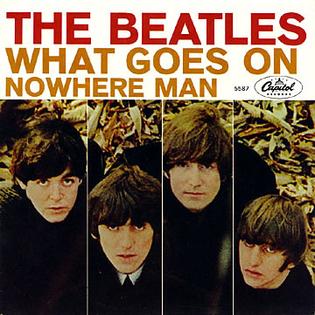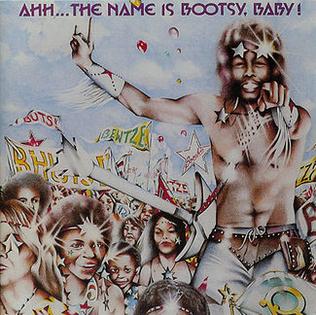See also
- Rubber Souldiers, an American band
Rubber Soul is a 1965 album by the Beatles.
Rubber Soul may also refer to:

Help! is the fifth studio album by the English rock band the Beatles and the soundtrack to their film of the same name. It was released on 6 August 1965. Seven of the fourteen songs, including the singles "Help!" and "Ticket to Ride", appeared in the film and take up the first side of the vinyl album. The second side includes "Yesterday", the most-covered song ever written. The album was met with favourable critical reviews and topped the Australian, German, British and American charts.

Rubber Soul is the sixth studio album by the English rock band the Beatles. It was released on 3 December 1965 in the United Kingdom on EMI's Parlophone label, accompanied by the non-album double A-side single "Day Tripper" / "We Can Work It Out". The original North American release, issued by Capitol Records, contains ten of the fourteen songs and two tracks withheld from the band's Help! album. Rubber Soul was described as an important artistic achievement by the band, meeting a highly favourable critical response and topping sales charts in Britain and the United States for several weeks.

Parliament-Funkadelic is an American music collective of rotating musicians headed by George Clinton, primarily consisting of the funk bands Parliament and Funkadelic, both active since the 1960s. Their eclectic style has drawn on psychedelia, outlandish fashion, and surreal humor. They released albums such as Maggot Brain (1971), Mothership Connection (1975), and One Nation Under a Groove (1978) to critical praise, and scored charting hits with singles such as "Tear the Roof Off the Sucker" (1975) and "Flash Light" (1978). Overall, the collective achieved thirteen top ten hits in the American R&B music charts between 1967 and 1983, including six number one hits. Their work would have an influential effect on subsequent funk, post-punk, hip-hop, and techno artists of the 1980s and 1990s, while their collective mythology would help pioneer Afrofuturism.

William Earl "Bootsy" Collins is an American bass guitarist, singer-songwriter, and record producer.

Stretchin' Out in Bootsy's Rubber Band is the first album by American funk and soul band Bootsy's Rubber Band, an offshoot act of Parliament-Funkadelic led by bassist and vocalist William "Bootsy" Collins. It was released on January 30, 1976, on Warner Bros. Records.

Collective Soul is an American rock band originally from Stockbridge, Georgia. Now based in Atlanta, the group consists of the brothers Ed and Dean Roland, Will Turpin (bassist), Johnny Rabb (drummer), and Jesse Triplett. Formed in 1992, the original lineup consisted of the Roland brothers, bassist David Neal, guitarist Ross Childress, and drummer Shane Evans. Collective Soul released their Hints, Allegations, and Things Left Unsaid album on the independent label Rising Storm Records in 1993. The band went from obscurity to popularity that year after the album's lead single "Shine" received regional radio play. Around the same time, Turpin replaced Neal on bass. The album was then re-released in 1994 by the major label Atlantic Records; thus, "Shine" became a national hit as it peaked at No. 1 on the Mainstream Rock and No. 4 on the Mainstream Top 40 charts.
"Norwegian Wood (This Bird Has Flown)" otherwise known as simply "Norwegian Wood", is a song by the English rock band the Beatles from their 1965 album Rubber Soul. It was written mainly by John Lennon, with lyrical contributions from Paul McCartney, and credited to the Lennon–McCartney songwriting partnership. Influenced by the introspective lyrics of Bob Dylan, the song is considered a milestone in the Beatles' development as songwriters. The track features a sitar part, played by lead guitarist George Harrison, that marked the first appearance of the Indian string instrument on a Western rock recording. The song was a number 1 hit in Australia when released on a single there in 1966, coupled with "Nowhere Man".

"Michelle" is a song by the English rock band the Beatles from their 1965 album Rubber Soul. It was composed principally by Paul McCartney, with the middle eight co-written with John Lennon. The song is a love ballad with part of its lyrics sung in French.

"You Won't See Me" is a song by the English rock band the Beatles from their 1965 album Rubber Soul. It was written by Paul McCartney and credited to Lennon–McCartney. As with songs such as "We Can Work It Out" and "I'm Looking Through You" from the same period, the lyrics address McCartney's troubled relationship with Jane Asher and her desire to pursue her career as a stage and film actress. The Beatles recorded the song during what author Mark Lewisohn describes as a "marathon" final recording session for Rubber Soul, to ensure the album's pre-Christmas release.

"What Goes On" is a song by the English rock band the Beatles, featured as the eighth track on their 1965 album Rubber Soul. The song was later released as the B-side of the US single "Nowhere Man", and then as the tenth track on the North America-only album Yesterday and Today. It is the only song by the band credited to Lennon–McCartney–Starkey and the only song on Rubber Soul that features Ringo Starr on lead vocals. The song reached number 81 on the US Billboard Hot 100 in 1966.

"Think for Yourself" is a song by the English rock band the Beatles from their 1965 album Rubber Soul. It was written by George Harrison, the band's lead guitarist, and, together with "If I Needed Someone", marked the start of his emergence as a songwriter beside John Lennon and Paul McCartney. The song's lyrics advocate independent thinking and reflect the Beatles' move towards more sophisticated concepts in their writing at this stage of their career. The song has invited interpretation as both a political statement and a love song, as Harrison dismisses a lover or friend in a tone that some commentators liken to Bob Dylan's 1965 single "Positively 4th Street". Among musicologists, the composition has been recognised as adventurous in the degree of tonal ambiguity it employs across parallel major and minor keys and through its suggestion of multiple musical modes.

"Wait" is a song by the English rock band the Beatles from their 1965 album Rubber Soul. The song is credited to the Lennon–McCartney partnership. In the 1997 book Many Years from Now, Paul McCartney recalls it as entirely his work. In a 1970 interview with Ray Connolly, John Lennon could not remember writing it, saying, "That must be one of Paul's."
"If I Needed Someone" is a song by the English rock band the Beatles, written by George Harrison, the group's lead guitarist. It was released in December 1965 on their album Rubber Soul, except in North America, where it appeared on the June 1966 release Yesterday and Today. The song reflects the reciprocal influences shared between the Beatles and American band the Byrds. On release, it was widely considered to be Harrison's best song to date. A recording by the Hollies was issued in Britain on the same day as Rubber Soul and peaked at number 20 on the national singles chart.

"Run for Your Life" is a song by the English rock band the Beatles from their 1965 album Rubber Soul. It was written primarily by John Lennon, though credited to Lennon–McCartney.
Flubber may refer to:

Ahh...The Name Is Bootsy, Baby! is a funk album by Bootsy's Rubber Band, released on January 15, 1977. It reached number one on Billboard's Top R&B/Soul albums chart, the first P-Funk release to achieve this goal. The album was produced by George Clinton and William "Bootsy" Collins and arranged by Bootsy and Casper.

The Rubber Soul Project was a Serbian rock band. The band took their name from the famous Beatles record Rubber Soul released in 1965. Their first album, The Rubber Soul Project, released in 1996, was conceived as an imaginary Beatles album, with the band writing music and lyrics to songs for which they had heard only the titles. Their second album, The Rubber Soul Project 2, also inspired by the music and the titles of never

Bootsy? Player of the Year is the third album by the American funk band Bootsy's Rubber Band. The album was released on Warner Bros. Records on January 20, 1978. At the height of the album's popularity, it competed head to head with Bootsy Collins' mentor George Clinton and his band Parliament, who had released the album Funkentelechy Vs. the Placebo Syndrome just two months earlier. The album was produced by Clinton and Collins and arranged by "The Player". The original vinyl version of the album contained a pair of cut out star shaped eyeglasses.

Charles Kent Wilson, also known as Uncle Charlie, is an American singer, musician, songwriter, and the former lead vocalist of the Gap Band. As a solo artist Wilson has been nominated for 13 Grammy Awards and 11 NAACP Image Awards, received a 2009 Soul Train Icon Award, and was a recipient of a BMI Icon Award in 2005. In 2009 and 2020, he was named Billboard magazine's No. 1 Adult R&B Artist, and his song "There Goes My Baby" was named the No. 1 Urban Adult Song for 2009 in Billboard.